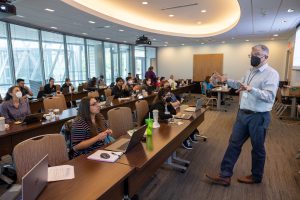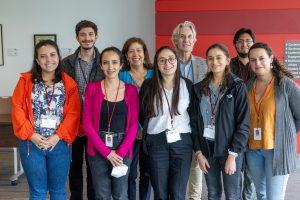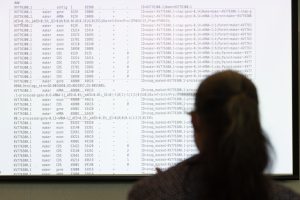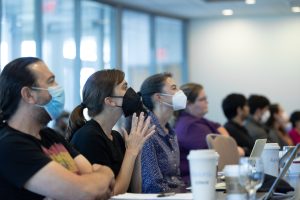Between May 22-25, 2022, UNC Center for Galapagos Studies researchers Corbin Jones and Alan Jones, alongside Universidad San Francisco de Quito (USFQ) colleagues Maria de Lourdes Torres and Hugo Valdebenito, hosted the first of two workshops to teach participants how to assemble and annotate genomes de novo. This workshop, held at NC State University, was made possible by a $1.2m NSF grant awarded in May 2021 to better understand the genetic characteristics of grasses across Ecuador – including the Galapagos, and how the genes within these grasses allow them to respond to changing light environments. This work began with a seed grant from UNC Center for Galapagos Studies, with part of the project being conducted at the Galapagos Science Center.

The workshop brought in 27 global participants from 12 institutions and six countries, including Brazil, Ghana, Nigeria, Ecuador, and India. Participants ranged from graduate students at different stages, postdocs, and early-career faculty. With many of the participants from USFQ, the genomics workshop was one more opportunity to showcase the strategic partnership UNC and USFQ share.

“The workshop helped a group of nine Ecuadorians, most of them young researchers, to have the opportunity to learn more about what genomics implies nowadays and the versatility of this field and its interaction with other areas such as conservation, evolution, biology, and medicine, among others,” said Maria de Lourdes Torres.
Maria continued by saying, “Sharing a workshop among people from various institutions and countries is enriching because connections are created and new interests are awakened. The support of the GSC for some of the Ecuadorian participants to attend the workshop strengthens the ties between USFQ and UNC and creates greater bridges of communication and collaboration.”

The motivation to attend was driven by a broad interest base, from ecology to medicine. Five speakers provided biological contexts for genomics, including conservation, ecology, medical, population and applied genomics. Lectures included topics such as “Genomics in Conservation Biology” and “Reconciling Genomic Data” with other sessions focused on hands on learning, addressing topics such as genome associations, statistics, and visualization.

As follow-up to the workshop, two participants intend to develop what they learned into teaching modules to be used at the undergraduate level and agreed to share their modules with other institutions and NSF. The next workshop will be held in two years at Urbana, Illinois. The intent of these workshops is to address the importance of continued training to share best practices with the tools available within genomics and bioinformatics.
Written by Kelly Weaver, Director of External Affairs & Communications at UNC Center for Galapagos Studies.
